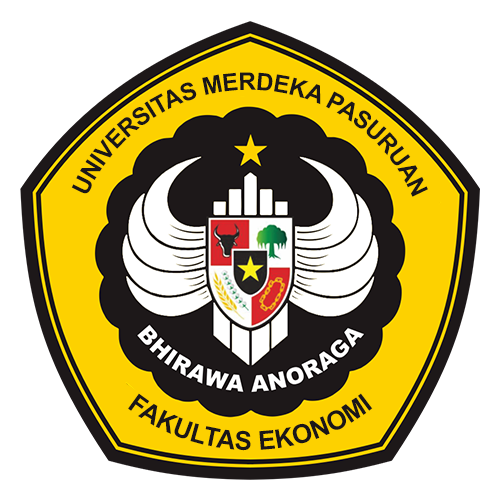Analysis of Character Factors Generation Z Career Choice in Lumajang District
Abstract
This study aims to analyze the characteristic factors influencing career choices among Generation Z, specifically in Lumajang Regency, East Java Province, with a case study at PT LABP. Generation Z, known as digital natives, has unique characteristics in determining their career choices. This research employs a quantitative approach using survey methods and multiple linear regression analysis to identify the influence of factors such as familiarity with technology, work values and attitudes, job flexibility, and the impact of social media on their career decisions. The findings indicate that familiarity with technology has a negative impact on the tendency to choose conventional careers, whereas job flexibility is a key determinant of Generation Z’s career choices. Additionally, social media plays a crucial role in shaping their job preferences. This study provides insights for companies and policymakers to enhance understanding and adaptation of recruitment strategies and career development plans to attract and retain Generation Z talent.
Keywords
Full Text:
PDF (Bahasa Indonesia)References
Barhate B, Dirani K, (2021/03/08). Career aspirations of generation Z: a systematic literature review. 10.1108/EJTD-07- 2020-0124. European Journal of Training and Development.
Bennett, S., Maton, K., & Kervin, L. (2012). The Digital Natives Debate: A Critical Review of the Evidence. British Journal of Educational Technology, 43(5), 775-786.
Choi, H., & Lee, H. (2021). Technology and Career Preferences: A Study on Generation Z’s Perception of Work and Career Development. Journal of Human Resources, 32(2), 85-101.
Daffa, Deandra Rafiq., Arthuro, Dave., Fernanda, Jovanes Agus., Pratama, Muh. Widya Star. (2024). Gen-Z: Exploration of Cultural Identity and Social Challenges in the Digital Era.
Deloitte. (2020). Global Millennial Survey. Deloitte Insights.
Diaconu, M., & Dutu, A. (2020). Employee behaviour within labour market: Generation Z vs. Generation Y. The USV Annalysis of Economics and Public Administration, 20(1), 113–119.
Duffy, R. D., & Sedlacek, W. E. (2017). The Career Decision-Making Difficulties of Generation Z: What are the Sources of Struggles? Journal of Career Assessment, 25(2), 231-247.
Fodor, M., Jäckel, K., & Szilagyi, T. P. (2017). Challenges of starting a successful career from the aspect of the Z generation. Proceedings of FIKUSZ, 93–107.
Gillespie, A., Hodge, C., & Armstrong, J. (2017). The Changing Nature of Work: What Generation Z Wants from Employers. Organizational Behavior, 62(1), 99-110.
Ipsos. (2022). Gen Z: Changing the Future of Work. Ipsos Report.
Jayatissa, K.A.D.U. (2023). Generation Z – A New Lifeline: A Systematic Literature Review.
Jha, V. (2021). Generation Z’s perceptions and attitudes towards tourism and hospitality as a career option – a preliminary investigation of residents of Jharkhand. Psychology and Education Journal, 58(1), 2953–2984. https://doi.org/10.17762/pae.v58i1.1192
Kaur, R., & Patel, D. (2021). The Role of Social Media in Shaping Generation Z’s Career Preferences. Journal of Social Media Studies, 12(4), 55-67.
Employment Conditions of the Republic of Indonesia. Central Statistics Agency data. https://www.bps.go.id/id/pressrelease/2023/11/06/2002/tingkat-open-unemployment--tpt--5-32-percent-and-average-wage-labor-of-3-18-millionrupiah-per-month.html. Retrieved January 2 2025.
Marwick, A. E. (2013). Status Update: Celebrity, Publicity, and Self-Branding in the Social Media Age. Yale University Press.
Pew Research Center. (2019). The Impact of Work-Life Balance on Generation Z's Career Choices. Retrieved from https://www.pewresearch.org
Prensky, M. (2001). Digital Natives, Digital Immigrants. On the Horizon, 9(5), 1- 6.
Ramchandra, Malkar Vinod Et. Al. (2023). Factors of Generation Z’s Excessive Social Media Use and Decreases Face To Face Encounters.
Seemiller, C., & Grace, M. (2016). Generation Z Goes to College. Jossey-Bass.
Smith, J. (2020). Generation Z and Career Choices: Exploring the Influences of Technology and Social Values. Journal of Career Development, 46(3), 215-232.
Turner, K., & Williams, T. (2018). Workplace Flexibility and Its Role in Career Decision Making. Journal of Business and Psychology, 33(1), 23-34.
Turner, K. (2020). The Role of Social Media in Shaping Generation Z’s Career Preferences. Journal of Social Media Studies, 12(4), 55-67.
Topalova, Svitlana., Topalova, Veronika. (2024). Generation Z: Social and Psychological Characteristics and Their Consideration in the Management of the Educational Process and Labour Activity.
Wajdi, Majid., Susanto, Budi., Sutiarso, Moh Agus., Hadi, Wisman. (2024). Profile of Generation Z Characteristics: Implications for Contemporary Educational Approaches.
DOI: http://dx.doi.org/10.51213/ema.v10i1.577
Refbacks
- There are currently no refbacks.
Copyright (c) 2025 Muhammad Reza Zulfikar

This work is licensed under a Creative Commons Attribution-ShareAlike 4.0 International License.
____________________________________________________________
Jurnal EMA (Ekonomi Manajemen Akuntansi)
Print ISSN : 2548-9380
Online ISSN : 2549-2322
Published by Universitas Merdeka Pasuruan
Managed by Fakultas Ekonomi, Universitas Universitas Merdeka Pasuruan
Address Jl. Ir. Juanda no.68 Pasuruan
E-mail fe.unmerpas68@gmail.com

Jurnal EMA (Ekonomi Manajemen Akuntansi) is licensed under a Creative Commons Attribution-ShareAlike 4.0 International License.
____________________________________________________________




